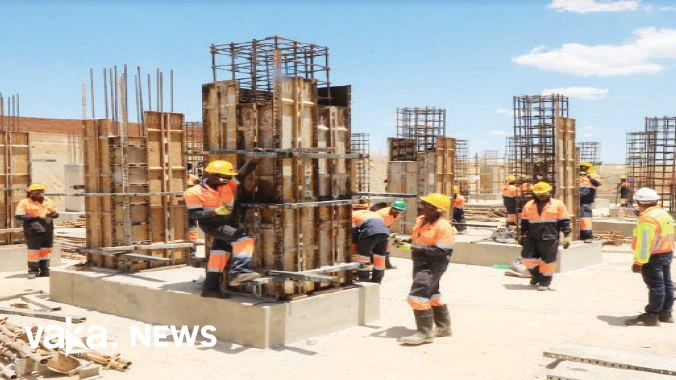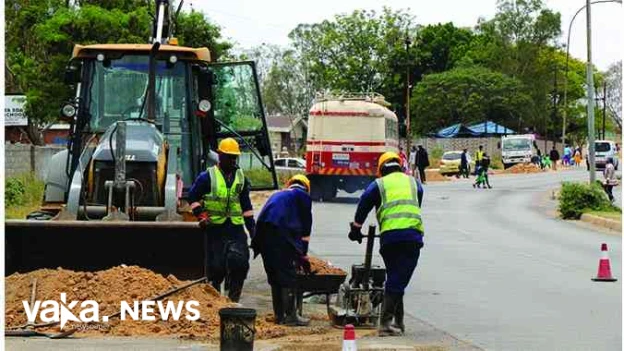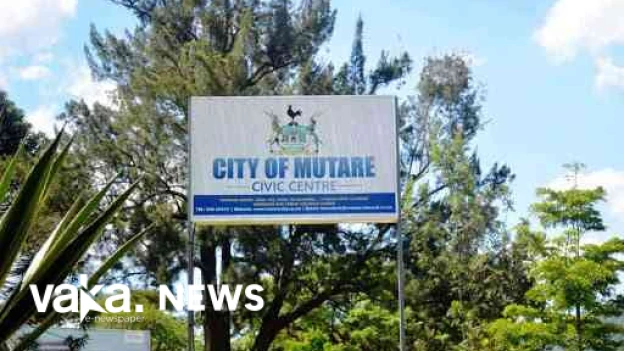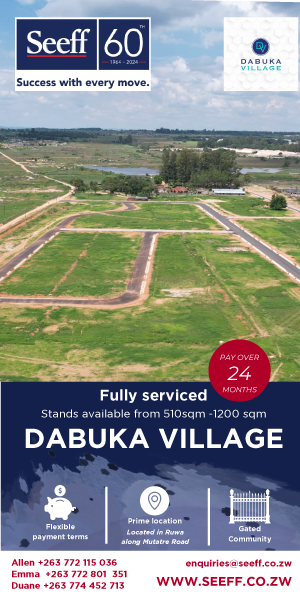Karo forges ahead with project despite price fall
- Category: Construction

- By Dion Kajokoto
Karo Platinum Holdings is going ahead with the development of its platinum mine despite the falling global platinum group metals (PGM) prices, with US$100 million already spent on mine infrastructure development.
The mining business is currently building an open-pit platinum group metals (PGMs) asset in Zimbabwe, with a phase 1 cost estimate of US$391 million.
During a tour of the mine, Dr. Josephat Zimba, the country manager, stated that although the PGM prices are at their lowest point in a long time and the project is being built in a difficult environment, they still depend on the government for support in many forms, including financial support, to see the project through to completion.
"These are multigenerational initiatives that have an effect on the quantity of workers engaged and the caliber of work produced here.
This will last for many decades and subsequently make a substantial contribution to this nation's economy. We will undoubtedly contribute significantly in terms of our fiscus contributions, and we will likely add an extra 190 to 200,000 ounces of PGMs every year, give or take.
"It's a significant project, and this is just the first phase of it; there will be more phases that follow," he remarked.
Due to a decline in PGM pricing, Karo's parent firm Tharisa Capital has recently moved up the project's commissioning date from July 2024 to June 2025.
However, Dr. Zimba stated that the average time to complete a mining project, from inception to operation, is approximately 12 years.
The Karo project is a large undertaking in terms of its scope and scale. While some people believe that undertakings of this nature can be completed quickly, this is not the case.
He stated, "You've seen the scale of what we've been able to achieve, including the pilot mining. Construction literally began in December 2022."
According to Dr. Zimba, the mine will use grid electricity to supply the roughly 30 megawatts of energy needed for the initial phase.
According to him, Karo has also signed a contract with ZETDC to deliver that energy, and if necessary, they may even import energy from the area.
In addition, a 30-megawatt solar plant will be constructed in parallel to supplement Karo's power supply. Any excess power generated that Karo does not use would be put back into the grid. Thus, at this point, that really constitutes a two-pronged power approach as well," Dr. Zimba stated.
He announced that the 31-kilometer power line from Selous, the transformers, and the substation refurbishment will all cost US$5 million.
"We intend to enhance the solar substation by adding a 125 MVA transformer. Additionally, we aim to install a 31-kilometer, 132 kV line to the site. Finally, we will reduce the use of 2×40 MVA transformers on the site," he stated.
According to Dr. Zimba, the project's scale requires significant financial backing in order to be completed, particularly at these extremely low prices.
As per his statement, the corporation had ongoing negotiations with the government, which has shown a great deal of understanding and assistance.
“We are going to engage to get things that we need support on, and these are ongoing discussions.
However, the government has also realized how important the project of this size is to the nation, and the benefits we provide to the country outweigh the financial support we need, the speaker stated.
When Karo is fully operational, at least 1,000 people will be employed by the company, and with a net effect of 1 in 7, at least 7,000 new employment will be created, according to Dr. Zimba.
In addition, the business has accumulated 68 000 metric tons of ore and finished the pilot mining project for US$8 million.
Dr Zimba said the pilot project was a very useful exercise for the workers to determine how they would mine that ore body.
"From that perspective, the pilot mining was successful, and we will have a pilot plant that is running and operating in the not too distant future," he added. "I think they were comfortable and happy that they were able to mine the ore body."
Value addition for the PGM industry and other minerals has been advocated by the government, according to Dr. Zimba, and Karo has taken it into consideration ever since the project's beginning.
He stated, "Our first priority is to bridge the cost gap that we are experiencing. In the next phase, we hope to further add value by adding more processing capacity to the concentration units."
Accordingly, he stated that concentrates will be produced in the first phase, while smelting and additional value addition will be investigated in the second.






